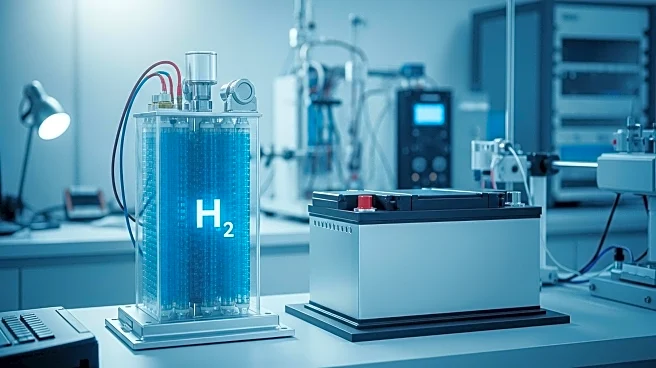What's Happening?
Researchers from Tokyo's Institute of Science have developed a hydrogen battery that operates at significantly lower temperatures than previous models, potentially revolutionizing energy storage for electric vehicles (EVs). The battery uses magnesium
hydride as the anode and hydrogen gas as the cathode, with a solid-state electrolyte. This innovation allows the battery to function at 194 degrees F, compared to the 572-752 F required by current hydrogen storage methods. The solid electrolyte, composed of barium, calcium, and sodium hydride, offers high electrochemical stability and ionic conductivity, enabling efficient hydrogen storage and release.
Why It's Important?
This advancement in hydrogen battery technology could lead to more efficient and sustainable energy storage solutions for EVs, reducing reliance on lithium-ion batteries. Hydrogen batteries offer the potential for higher energy density and longer lifespan, addressing key challenges in EV design and performance. The ability to store hydrogen at lower temperatures without high-pressure systems could make hydrogen a more viable green energy source, contributing to the transition towards sustainable transportation.
What's Next?
Further research and development are needed to scale up the production of these hydrogen batteries and integrate them into commercial EVs. Collaboration with automotive manufacturers and energy companies will be crucial in advancing this technology. The focus will be on optimizing the battery's performance and ensuring its compatibility with existing EV infrastructure.
Beyond the Headlines
The shift towards hydrogen-based energy storage raises questions about the environmental impact of hydrogen production and the infrastructure required for widespread adoption. Addressing these challenges will be essential in realizing the full potential of hydrogen as a clean energy source.
















